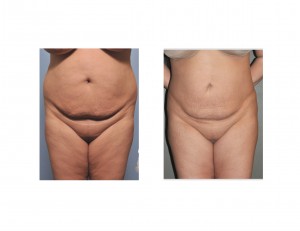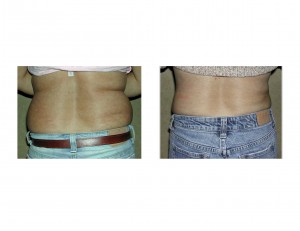
In the Online First edition of the June 2014 issue of the Aesthetic Surgery Journal, an article was published entitled ‘No Increase in Female Breast Size or Fat Redistrbution to the Upper Body After Liposuction – A Prospective Controlled Photometric Study’. In this report, eighty-two women underwent cosmetic surgery consisting of liposuction or liposuction combined with a tummy tuck (one group was a control of 24 patients who had no liposuction), breast measurements were done from photographs and the groups compared. The results showed that there were no significant changes in mean body weight, breast size or upper body dimensions. Those women that had liposuction combined with a tummy tuck had a significant decrease in upper abdominal width.
This study provides data that runs contrary to the theory of fat redistribution with unchanged upper body dimensions. It is not a perfect study nor does it absolutely prove that it does not happen in that it does not follow the patients for years. But in the short-term, no immediate or rapid redevelopment of fat could be shown.

Conversely the fat homeostasis theory also seems logical and runs counter to the weight stability theory after liposuction. This study combined with other contradictory studies keeps this issue unresolved. The answer is likely that both fat theories have some merit and is very patient dependent. But if patients really want to maintain their liposuction results the longest, rigid adherence to diet and exercise is still the best insurance.
Dr. Barry Eppley
Indianapolis, Indiana


